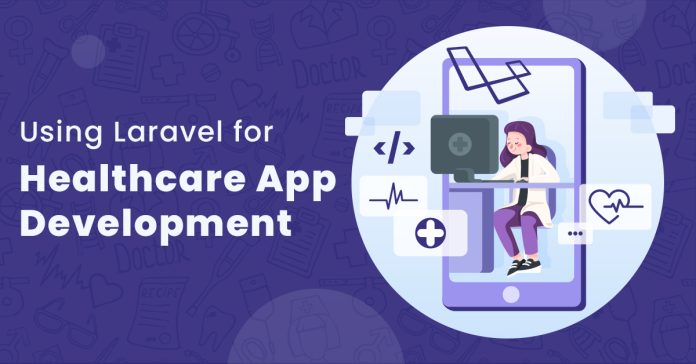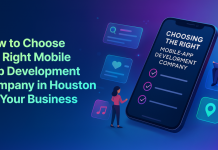Healthcare apps have become quite popular and essential today, especially in the wake of the COVID-19 pandemic. These apps offer several benefits for both patients and providers including convenience, accessibility, efficiency, and cost-effectiveness. With quality healthcare app development, patients as well as healthcare service providers have the chance to avail a more streamlined and faster service on-demand.
For instance, monitoring the health conditions of the patients and access medical records have become easier for patients and healthcare service providers. While the patients can book appointment at clinics and hospitals to consult with doctors and also later order the prescribed medicines, the healthcare service providers can accept bookings made and keep a track of the medicines to be shipped and the stock.
Customized apps for healthcare can also assist doctors to improve their workflow by minimizing human errors and enhancing communication with their patients. Overall, there is a marked increase in patient satisfaction and ultimately more revenue.
Healthcare app development – the necessity today
Healthcare apps are software applications installed on computers and handheld devices like mobile phones, and wearables to provide several health-related services. These mobile and web apps assist users to monitor their health conditions byaccessing medical information, communicating with healthcare providers, and managing their medicines. Healthcare web apps improve the quality and efficiency of healthcare services as they bring down costs, and improve patient satisfaction and positive engagement.
Healthcare apps are especially important today because the world faced unprecedented challenges due to the COVID-19 pandemic. Specialized apps had helped users stay informed about the latest news, guidelines, and precautions regarding the virus then. Considering the usability, today, healthcare apps are also used for self-screening for symptoms, tracking their exposure, and getting tested or vaccinated if needed.
The latest apps for medical sciences have facilitated telehealth services that allow users to consult with healthcare professionals remotely as there is no need to visit a clinic or hospital. Thus, with such apps, we can reduce the risk of infection and ease the burden on the healthcare system.
All in all, healthcare apps are essential tools that can help doctors streamline their healthcare services and offer patients the flair of well-being in a convenient and accessible way; additionally, contemporary technologies such as Artificial Intelligence and Machine Learning have boosted the efficacy of apps in various ways.
Why is Laravel the best choice for healthcare app development?
Investing in healthcare app development is a wise choice and one can consider it as a strategic decision for their medical or healthcare business. While many technologies and tools are available for healthcare application development, Laravel is the frontrunner according to tech experts. You can hire Laravel developers who can use the best of this technology to craft efficient and reliable web applications for healthcare that meet needs and standards.
Here are some of the reasons to mention:
The immense popularity and healthcare-friendly approach
Laravel is a PHP framework that offers many benefits for web appdevelopment. The web apps built on this platform are easy to use, secure, scalable, and flexible. Not just among developers but also clients, Laravel has immense popularity because it simplifies complex tasks like authenticating, routing, caching, and testing content. Laravel is also healthcare friendly because it supports HIPAA compliance, encryption of data, and various third-party healthcare API integration.
Robust security system
Laravel offers a robust security system for web applications for medical sciences. It protects sensitive patient data from unauthorized access, malware attacks, and cross-site scripting through the best features such as:
- Authentication and authorization: Laravel provides a simple and secure way to authenticate users and assign different roles and permissions to them. It also supports multiple authentication providers, such as OAuth, LDAP, and social media accounts.
- Encryption and hashing: Laravel encrypts all sensitive patient healthcare data using a special algorithmconsidered to be the industry standard. The technology also hashes passwords and other credentials using the healthcare data cryptalgorithm preventing hackers from cracking them easily.
- CSRF protection: Laravel automatically generates and verifies a unique token for each form request to prevent cross-site request forgery (CSRF) attacks. CSRF attacks are terrible malicious exploitsin which hackers trick a user into submitting a form and thus perform an unsolicited action on their behalf.
- XSS protection: Laravel escapes all user input by default to prevent cross-site scripting (XSS) attacks. These attacks are a kind of malicious action where a hacker injects malicious code into a web page compromisingpatients’browsers or data.
Flexible and modular architecture
Laravel’s flexible and modular architecture is beneficial for healthcare apps because they allow for feature-rich, customized, and interoperable services. Scalability means that the app can tackle ever-growing demands and users with no compromise on performance or functionality.
Customization is the tailoring of an app tothe specific needs and preferences of different stakeholders in healthcare setups like patients, doctors, and administrators. Interoperability is another feature through which the app can communicate and exchange information with other systems and platforms including EHR, PHR, DICOM devices, and cloud services. By having Laravel’s flexible and modular architecture, healthcare apps can deliver augmented quality of care, improve user experience, and bring down costs and risks.
Rich set of features and tools
Laravel houses a rich set of features and tools for developing web applications for doctors and patients. It is especially beneficial for healthcare app development by providing several advantages such as:
- Security: Laravel has built-in features to protect the healthcare app from common web vulnerabilities such as SQL injection, cross-site scripting, and cross-site request forgery. As stated earlier, Laravel also supports medical data encryption, hashing, and authentication mechanisms to ensure the safety and privacy of patients’ data.
- Scalability: Laravel can handle high traffic and complex functionality with no hassle. Thanks to its modular architecture and caching system that offer queued service. You can also get support for horizontal scaling, which means it is easy to add more servers to handle the healthcare data load without affecting the performance of the app.
- Testing: Laravel offersa powerful testing suite that allows programmers to write and run automated tests for healthcare apps. Testing is crucial for medical app development because it ensures the quality and usability of the app and reduces the risk of errors and bugs.
- Customization: Laravel is highly customizableto use several packages, libraries, and extensions. This all allows programmers to have more patient and doctor-centric features and functionality in the app. Laravel also follows the MVC (Model-View-Controller) pattern, which separates the business logic from the presentation and makes the code easier to maintain and modify.
A large and active community
Laravel is considered a renowned and powerful framework for building healthcare applications. The technology offers ample features and tools that help developers build secure, scalable, and user-friendly healthcare solutions. But the best part is that Laravel also has a large and active community to provide support 24/7 for any documentation and resources for healthcare app developers. The community organizes events like Laracon and Laravel Live. They also publish tutorials such as Laracasts and Laravel News. Laravel experts from all over the world contribute to open-source projects Laravel Breeze and Laravel Jetstreamrelated to Laravel and healthcare.
What are the features one can have in healthcare apps built by Laravel?
Healthcare apps built on Laravel offer many benefits to all stakeholders and users. A customized healthcare app meets the specific needs and preferences of users. With a web app built on Laravel, it is possible to improve doctor-patient relationships, increase patient engagement, enhance medicaldiagnoses, and better overall healthcare services. However, it is essential to identify and prioritize the best features of healthcare apps that can have abetter impact and value.
Some of the best features that can have in a customized healthcare app are:
- Personalization: This feature allows the programmers to customize the app according to patient information, medical goals, doctors’ preferences, and needs. For example, the patient can set their own reminders, alerts, preferences, and profile. Personalization also includes adaptive learning, which means that the web app can adjust its content and recommendations based on the patient’s behavior and feedback.
- Integration: It enables the app to connect and communicate with other healthcare devices, machines, systems, and software services relevant to the user’s health and wellness. For example, the Laravel app can integrate with personal data, electronic health records, telehealth services, and social media. Integration also facilitatescrucial data sharing, sync, and medical data analysis across different sources and platforms.
- Security: Security ensures that the app protects the patient’s privacy and confidentiality of their medical or health data. For instance, the app can use encryption, authentication, authorization, and consent algorithms to safeguard medical data from unlawful access or misuse. Security measures in Laravel medical apps include compliance with relevant rules and regulations regarding medical data protection and privacy.
- User interface: UI refers to the design and layout of the app’s screens that include menus, buttons, icons, and other components usersinteract with. Say, the app uses clear and consistent plus intuitive design principles to make the app simple to use and navigate. The UI/UX can also include accessibility, which means the app can accommodate users with different abilities and approaches.
- Content: Content relates to the information, guidance, advice, feedback, and support that the applications provide to the patients or doctors. For instance, the app can use evidence-based medicines, reliable medical article sources, and relevant content to educate, motivate, and empower patients or sufferers. Content can also include gamification, which means patients are rewarded with points, badges, levels, and prizes to make the app fun and interactive.
Develop customized healthcare to help patients
Laravel is the best choice to build a customized healthcare application as it can benefit both healthcare providers as well as patients. While the former can manage their clinic’s or hospital’s internal and external operations, the latter can have online appointment booking. For both, it is possible to chat and access important medical data and lead a better life.






